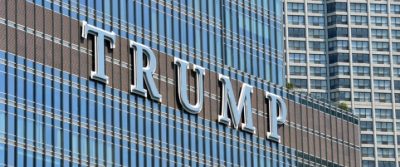Will Trump Take Action Against OPEC?

Brent is creeping back up towards the high-$60s per barrel, prompting a scolding of OPEC by President Trump via tweet earlier this week.
Trump’s irritability with high oil prices is well-known, but the tweet suggests that he sees oil prices getting too close to dangerous political territory once again. He wants more supply to lower prices, but OPEC is much less likely to heed his warning this time around, having been burned by him last year following the surprise waivers issued on Iran sanctions, which helped crash the market.
Trump told OPEC to “relax and take it easy,” and in response, Saudi oil minister Khalid al-Falih said:
“We are taking it easy; 25 countries are taking a very slow and measured approach.”
Al-Falih’s comments suggest that OPEC will not back down in the face of pressure from the U.S. government.
The standoff is unfolding at a time when the U.S. Congress is pushing forward on the “NOPEC” legislation, which would open up OPEC members to antitrust regulation by the U.S. Justice Department. Legislation targeting OPEC has floated around Washington for years, but the momentum and odds of passage into law have never been higher. A confluence of events have come together in favor of the bill, including Democrats in the House of Representatives, an erosion of Saudi support on Capitol Hill, and a mercurial President that likes to rhetorically beat up on OPEC.
At a minimum, the possibility of the NOPEC bill becoming law grants President Trump significantly more leverage in his demands for OPEC to lower oil prices. So far, at least publicly, he has refrained from using that threat, most notably in his February 25 tweet calling on OPEC to “relax.”
“The effect of President Trump’s comment would likely have been greater had he explicitly mentioned the [NOPEC bill],” Standard Chartered analysts wrote in a note.
The investment bank noted that the sharp fall in oil prices that day may have been a result of the market interpreting the tweet as a veiled threat to OPEC regarding the NOPEC bill. However, Standard Chartered said that may not have been the case.
“Trump has not up to now been known to specialise in veiled threats; he tends to be explicit.”
So, perhaps Trump is holding his fire, at least for now. Even though Capitol Hill has warmed up to the bill, there are powerful interests lining up against the legislation, including the U.S. Chamber of Commerce, the American Petroleum Institute and much of the domestic oil industry. After all, U.S. oil producers are perfectly happy to let OPEC cut production to boost prices – OPEC’s actions to engineer higher prices works entirely in the favor of U.S. shale drillers.
Also, U.S. Secretary of Energy Rick Perry expressed some skepticism on Thursday about the NOPEC bill, arguing that without OPEC’s market management, prices could crash, dealing a blow to supply, which could subsequently raise prices again. Hailing from Texas, Perry is wary of letting his friends in the shale industry suffer. In short, no market management from OPEC means a lot more volatility.
Still, OPEC is not exactly popular in Washington or elsewhere in the United States, so it doesn’t exactly have much of a political constituency outside of the oil industry. Bashing OPEC, or at least being seen as confronting the oil cartel, is arguably a political winner. That gives the bill decent odds of becoming law.
“We see NOPEC as potentially one of the defining issues for the oil market in 2019,” Standard Chartered analysts concluded. “While President George W. Bush vetoed similar legislation on grounds of it acting against the US national interest, the possibility of it being enacted into law should it reach President Trump’s desk appears significant in our view.”
For its part, OPEC doesn’t appreciate being made the bad guy. Secretary-General Mohammad Barkindo said that if it weren’t for OPEC, the oil industry would have faced disaster.
“OPEC has been doing a great service,” to the industry and to global oil markets, Barkindo told CNBC on Wednesday. “The decisions that OPEC took, together with our non-OPEC partners, literally rescued this industry from total collapse.”
When asked about the NOPEC legislation, Barkindo said:
“You can ask the producers in the shale basins in the U.S. whether they have benefitted from the actions we have taken over the years.”
He essentially argued that the U.S. needs OPEC to maintain market stability.
“[W]ithout OPEC, the U.S. would probably have created another organization to do exactly the same.”
*
Note to readers: please click the share buttons below. Forward this article to your email lists. Crosspost on your blog site, internet forums. etc.
Featured image is from OilPrice.com

